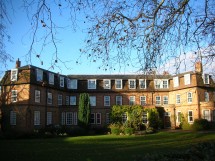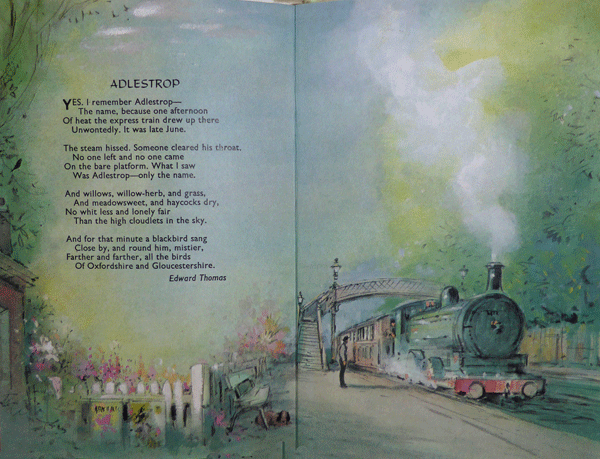My History: A Memoir of Growing Up

Dragon School, Oxford. Not my alma mater.
(by Lady Antonia Fraser)
It would be unfair for me to compare Lady Antonia Fraser’s first volume of memoirs with that of her cousin, Ferdinand Mount because in many aspects Fraser had the (early) life and has had the career that I wanted, whereas I felt only the vaguest envy for Mount’s connections and have never aspired to working for Margaret Thatcher.
While growing up in the hideous new lower-middle-class outer suburb of Dust in South Australia, attending Dust Primary and High Schools, I knew that I really belonged in a large nook-filled house in Oxford, attending a private school, learning Latin and Greek in preparation for Oxford, in its turn a preparation for my inevitable career as an author. A terrible, rather complicated and unlikely mistake had been made. So, unfair as it is to compare the memoirs, given my identification with one cousin and not the other, I shall commence the comparison now.
Although Fraser’s mother insists that her socialist-leaning family was middle-class, the Mount-Longford-Pakenhams are aristocrats. While Mount is at pains to never let it be forgotten that every important person in the UK is a relation or friend, Fraser’s name-dropping is less intensive and more relevant. Fraser and Mount’s paths did not seem to cross often, but whereas Mount MUST mention that the Lady Antonia he encounters at a dinner party is his cousin, Fraser does not mention Ferdy, although she maintains a grateful affection for his parents, her Aunt Julia and Uncle Robin, who visited her (whereas her parents did not) during her miserable years at Godolphin School (this coming after her years at the fabulous Dragon School, which I was obviously meant to attend.) Mount’s risible classification of his family as poor is unironic and unambiguous, whereas Fraser slyly introduces her family’s “poverty” as a matter of her parents’ perception again, about which her view is not given):-
“As matters progressed, Frank and Elizabeth got to the stage of working-out that between them – my mother’s middle-class allowance being rather larger than my father’s upper-class one – they would have about one thousand pounds a year (roughly fifty thousand pounds today). Both of them felt that for two people this indicated poverty, my mother with energetic determination that my father’s extravagance should be curbed, my father with a fatalistic shrug of the shoulders: for him some kind of guilt lurked around joy itself, making it certain that life could never be easy.”
While each of the cousins has the innate confidence of the upper-class, Antonia is exuberant and untroubled. Mount is inward and unsettling. Fraser’s attempts at feet-on-the-ground acceptance of her shortcomings is somehow even less convincing than Mount’s overdone modesty.
Fraser’s book belts along at a fine rate, while Mount’s does not pick up pace until the end when he takes to politics. It is, one suspects, the very speed of the writing which allows surprising, jarring lapses in the. language. For example, having praised her best friend Lucy’s home as a mixture of the artistic and of “warm family life” Fraser says this – “Holidays in the Pollens’ house on Lambay Island off the coast of Dublin were even more agreeable, with a cowrie shell gathered from the beach serving as a souvenir of the same hospitable combination” and she describes Victor Kravchenko who had been a Soviet official before obtaining asylum in the US as a “captivating speaker, in the literal sense of the word“.
Fraser is a quick-reading child, a clever secondary student and a lazy undergraduate. She is not a deep thinker. The Fraser parents convert to Catholicism. In her eager way this is nothing but excitement and romance for the teenage Antonia for whom conversion is more a matter of improved aesthetics, the opportunity to adopt saints as personal heroes and an important social distinction rather than any issue of spiritualism or faith. In the same way she impulsively decides to vote Tory because she likes their election poster and then becomes engaged to marry a man whom she does not even realise is a Tory MP, despite years spent assisting her socialist MP parents on the hustings.
Fraser let both of us down by attending a college other than Magdalen and by failing to earn a first. However, she then did quite well by us by working with a publisher for a while. Following that short stint she started on the ground-breaking royal biographies, histories and Jemima Shore novels for which she is famous. She has written a memoir previously, a sort of sequel about her years with Harold Pinter.
I too read a great deal as a child. “The Wind in the Willows” ” The Little White Horse”. “Tom’s Midnight Garden” “The Secret Garden”. “The Weirdstone of Brisinghamen”, “Alice in Wonderland” “The Hobbit” were all written in and about a UK (usually England) where fairies lived at the bottom of the garden. Thus the UK (a UK which never existed) was a faeirie place to me but it was Antonia Pakenham’s world.
“Any time, any place, the sound of bells reminds me of Oxford. Venice at evening: I’m transported back to childhood. The water dissolves into the River Cherwell. St Mark’s fades into Christ Church doorway; the romantic gondolas become everyday bicycles. Much later, when I discovered for myself the poetry of Edward Thomas, his most famous poem became transposed in my mind : all the bells of Oxfordshire, not the birds, sang for him at Adlestrop. And for me ever since.”
This passage, with which the book opens. rang a bell for me. I turned to my beloved collection of The Fireside Books of AD Hope – I took these evocative, romantically illustrated poems to be true representations of the world I really belonged in. And there it was –
I think that the young Antonia Pakenham might have found this a little twee.
Leave a comment...
While your email address is required to post a comment, it will NOT be published.



0 Comments